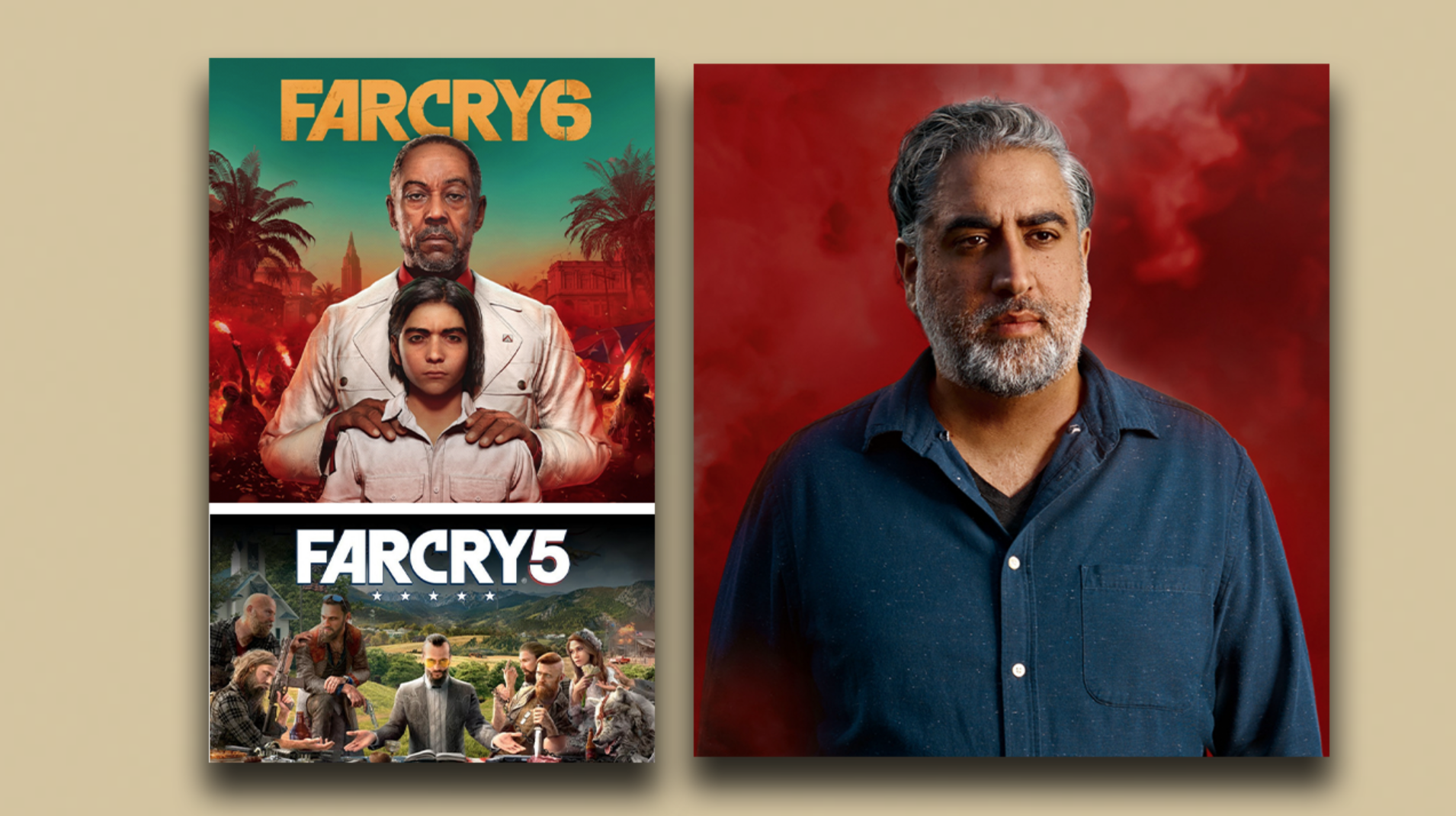Navid Khavari, narrative director for the popular Far Cry video game series, shared career insights with the university community in the first of the Game Design Minor’s “Game Dev Talks.”
Elon students had the chance to hear from a video game industry professional in the first of a series of exciting lectures hosted by the Game Design Minor program.
On April 14, the Game Design Minor invited the campus community to the inaugural “Game Dev Talks,” featuring narrative director for the Far Cry video game series Navid Khavari. Khavari shared insights about entering and working in the video game industry and told students about some of the lessons he’s learned throughout his career.
Khavari is the narrative director of the highly anticipated Far Cry 6, produced at Ubisoft Toronto. Khavari has also worked as an associate narrative director, narrative designer and writer on Far Cry 4, Far Cry 5 and Far Cry Primal, in addition to numerous other Ubisoft projects such as The Division and Splinter Cell. Prior to his work in video games, Khavari brought his passion for strong and meaningful narratives to projects in both comic books and radio.

During the virtual lecture, Khavari answered questions from host and Assistant Professor of Computer Science Pratheep Paranthaman, as well as a number of Elon students. Khavari took several questions about the video game writing process and offered advice about applying for gaming jobs and accepting criticism. He also highlighted the importance of flexibility and teamwork throughout the game-making process.
“The project is going to change, people are going to come in and out and it doesn’t matter the size of the chaos with it, you ride it one day at a time,” Khavari said. “The beauty of this job – if you learn to open yourself up and trust those around you – is you learn something new every single day. Whether you’re a director or writer, when you work in games, you are in a sandbox that is constantly changing because of tech, because of trends in the industry. And you have to work within it – that sandbox is always changing, so you have to work with the folks around you and adapt to it.”
Khavari kicked off an ongoing series of “Game Dev Talks,” which will bring video game industry experts to Elon to share their experiences with the community. The audience will learn about the many aspects of the game-making process – deadlines, research, roadblocks and more.
“We wanted to create a bridge between industry professionals and our students,” Paranthaman said. “What really matters is that the person who has been through the entire phase can share their rich experience with the students, and we hope it can be extremely inspiring and motivating.”
Elon’s Game Design Minor program takes a multi-disciplinary approach to the art of game design. The program welcomes students from all backgrounds to study, design and implement games. The minor includes a disciplinary sequence as a foundation for any number of roles a student might play on a game-building team.
“That’s what we emphasize – teamwork,” Paranthaman said. “The Game Design Minor helps you identify your strengths in the game-making process.”
To learn more about the Game Design Minor, click here.



